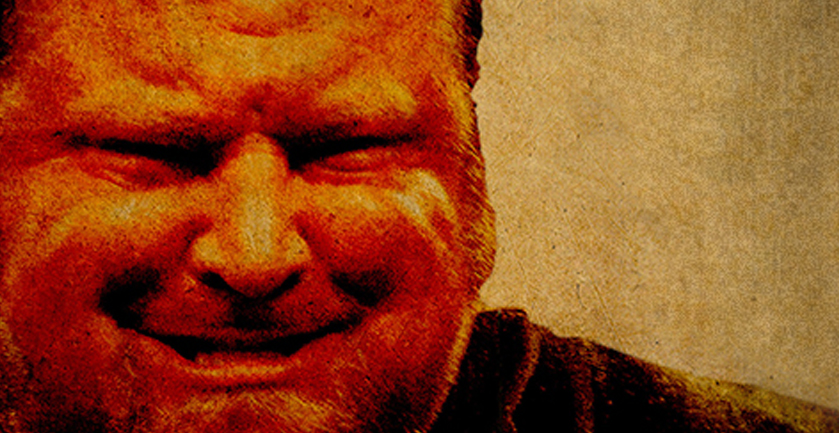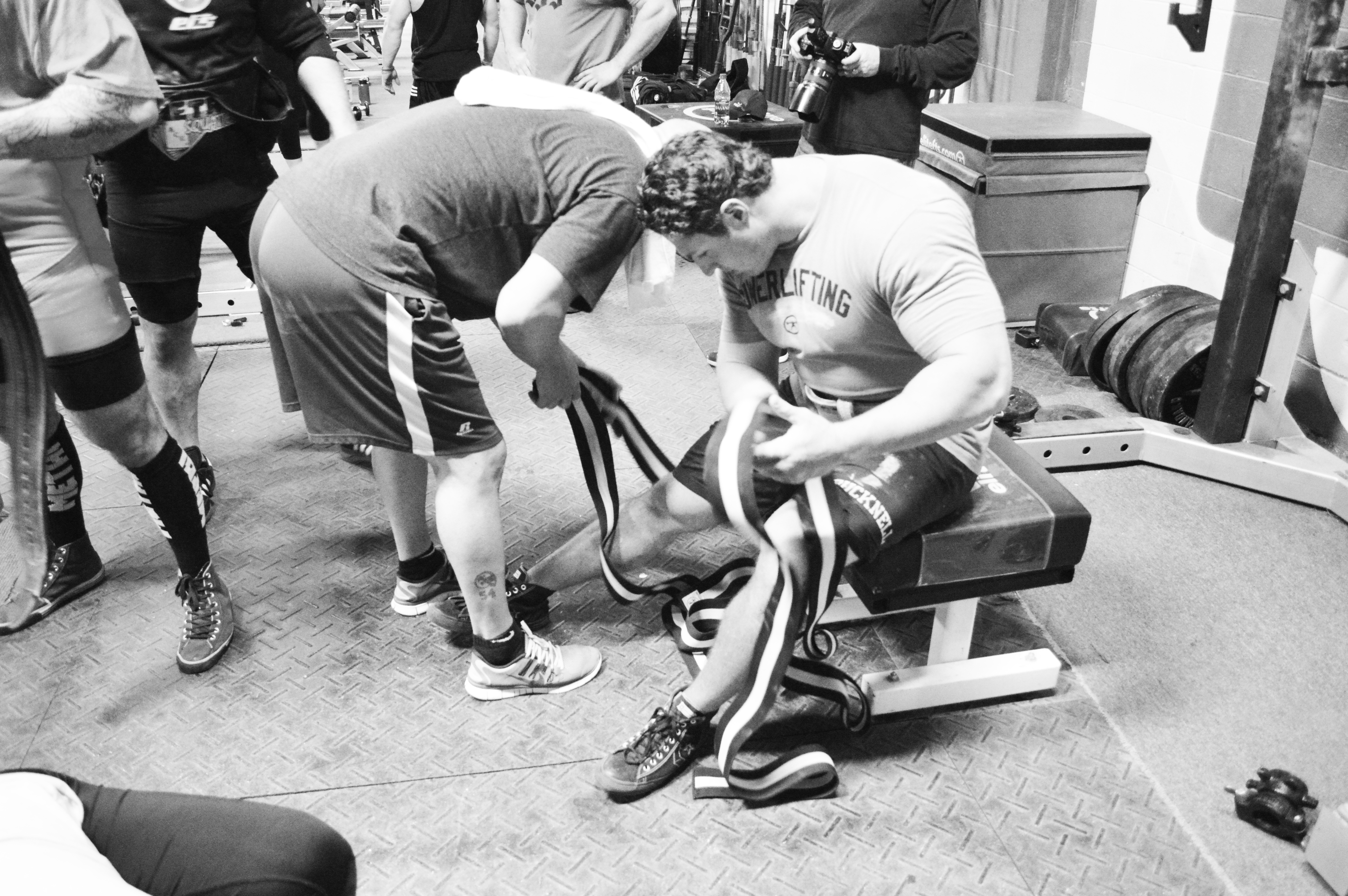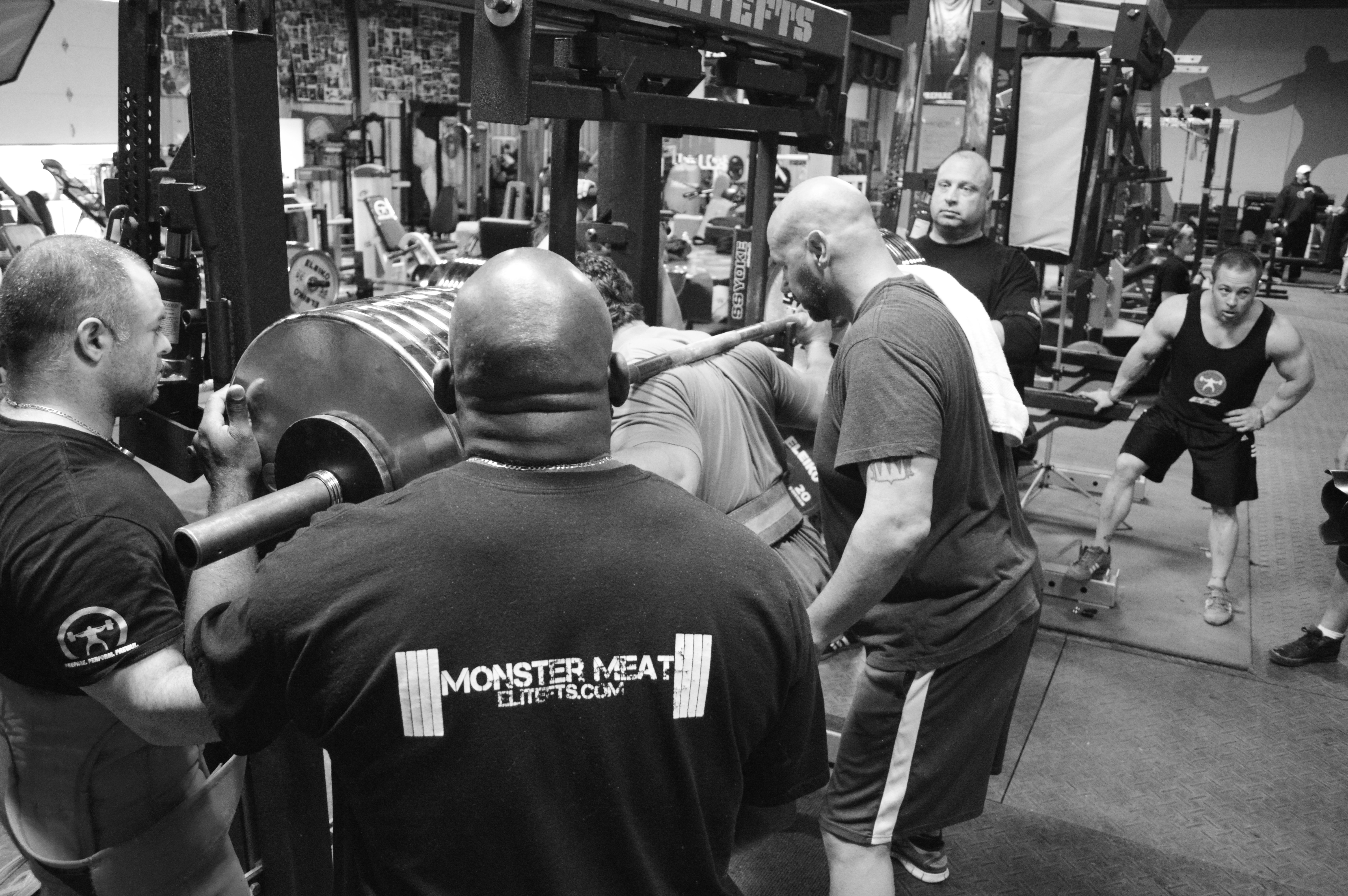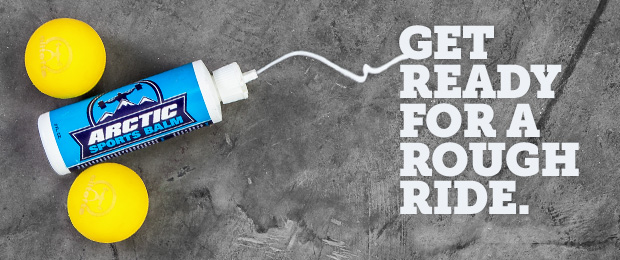
There is a saying, “Pain is how your body speaks to you and you would do well to listen.” I'm intrigued by this saying and can see some logic in it. Why would the body produce pain if there wasn't a reason for it, right? My problem is that apparently I don't speak pain very well. I believe I have selective hearing when it comes to understanding what pain is saying to me.
Right now, it's 5:30 pm on a Monday night, and I should be training max effort squat/deadlift, but I'm writing this article instead. Maybe there is some hope for my linguistic skills yet. I somehow strained my low back a week ago and this is why I'm not training. I have no idea how I did it, but I suspect that it was a combination of overtraining, lack of sleep (big surprise) and working on my last tile job. I worked Saturday on demo and prepping the job. Then I had time to shoot my bow for a couple hours. I woke up Sunday with an extremely painful low back and it wasn't the kind of sore you get from training. Once I stood up, I couldn't straighten myself up no matter how hard I tried. After looking in the mirror, I thought I had developed scoliosis overnight. Yes, I know this isn't possible, but my back was in a serious S curve that I couldn't make into a lowercase L.
After some stretching, I was able to get somewhat straighter, but my low back wanted to hunch all day. It made for a fun Sunday of setting tile. This back pain was completely different than anything I have ever felt. It was a little similar to when my back goes out, but I had full range of motion. My best diagnosis was a muscle strain.
RELATED: The Obstacles You'll Face Becoming A Great Powerlifter
As the week went on, it slowly improved with ice, stretching and leaving work early to just let it rest. As it improved each day, I was able to hold my natural low back arch a bit better and for a bit longer. The pain also gradually decreased over the days. This last weekend I finished up setting the tile for this job. Today is the best it has felt, and I woke up with my spine much straighter than it has been over the last week. The pain has also decreased a lot, and I can hold my arch much better. I do still feel some pain, and my low back still gets tired quickly. Despite trying to keep my arch, I still end up hunching most of the day.
Let me just say that it has never been easy for me to miss training. It has always been a fight. I missed all last week and that was hard, but being in pain and not really being able to lock in an arch kind of forced my hand. All this last weekend, I have been thinking about training today and hoping I would wake up feeling normal so that I didn't have to make a decision about training. Right now, the majority of my body is screaming at me to train. It says, “Something is better than nothing. You don’t get stronger if you aren't training, and your world is only right when you train.”
I really, really, really want to train and have been debating the subject in my head for days. Today the big debate in my head went something like this: “Shut up and train! No, be smart and heal up!” The debate is made even more difficult because training has been going really well. I've finally been able to pick up intensity and I've been training consistently. Part of my mind sees these missed training sessions as a huge setback and the derailing of a train that is finally picking up speed. These kind of thoughts have been a struggle throughout my entire lifting career. I have countless stories of my struggles to back off and even more where I screwed something up or made it worse by training through pain.
Just off the top of my head, I can say that most of my torn muscles were made worse because I didn't listen to my body speaking pain. There is the pec I originally tore training for a local meet. I tore it worse a few weeks after that. Then a few more weeks later, I tore it again at the meet. This time it was a really good tear. Now, I have half a pec because I gave my word that I would do the meet and I ignored my body talking to me with pain. I can still hear myself saying, “It doesn't hurt that bad. I'm Chad mother f&*^%$# Aichs!”
I tore my hamstring twice training for the WPO finals, and guess what I did on my first attempt squat at the meet? Yep, I tore it really good, and I have the enormous hole in the back of my leg to prove it. I've torn my biceps multiple times in a row. I did it once at Highland Games throwing the sheaf, but did I listen to the pain? Hell no. I kept throwing higher and making the tear worse. With my triceps tear, I finally listened to the pain, but then again, the first tear was so extreme that it was hard not to listen.
I train through all kinds of pain on a regular bases. I even kept training while spiraling down to the darkest place I have ever been. It took hitting rock bottom and a long, long time of making it my residence before I listened to the pain. You could say that I'm just a bit hard of hearing and that I have a solid habit of only listening to what I want to hear. In my own defense, I do at some point learn, and once I learn it, I'm pretty good at retaining that knowledge.
Still, listening to pain is a tough lesson for me and one I seem to continue to struggle with. I think the hardest thing is that some pain is good and some is bad and how the hell can I tell the difference? Squatting 1200 pounds hurts, but damn, it hurts good. Having a drag out, balls to the wall training session hurts, but it feels amazing afterward. Sometimes it's necessary to go through the pain to feel the glory. There are many injuries that I've been able to train through and they all hurt. I don't see how anyone could possibly get seriously strong without going through some pain. I've had times in the gym when I feel a tweak in my back, knee, elbow or somewhere else, but I ignore that pain to have a great training session. Then the next day I feel just fine with no injury at all. Sometimes I get overuse injuries, but I work through them and the pain. Would backing off completely help heal it faster? Probably, but then I might not have made the gains I did working through it. In all my years, I've never heard a concrete answer to which pain is good and which is bad. I think it boils down to learning your body and learning to understand what it's saying.
I also believe that even with horrible outcomes, there are times when I feel it's worth it to tell my body to zip it and that I won't listen to or speak pain, like the WPO finals where I tore the shit out of my hamstring for the third time. I don't regret that at all, not even in the most minute way. I got my original attempt and put another 50 pounds on that for 1173 pounds on my third attempt. That was a big PR, and to this day when I feel that hole in the back of my leg, I chuckle a little bit. Call me crazy, but I'm proud that I could squat that kind of weight with one leg. That torn hamstring was totally worth it. It was the WPO finals at the Arnold Classic against the best of the best! You don't quit because of a little pain in a situation like that. I could've quit, but instead I took second place. I'm not so happy about second place, but it's way the hell better than quitting.
On my very first 800-pound squat attempt, they messed up running the monolift and it took them too long to get the hooks out of the way. I tried to squat it anyway but got loose at the bottom. This probably would've been fine, but I wasn't very experienced with gear back then. My suit was loose, and I had a very wide stance, so when I got loose, I dropped way deep. It seriously wrenched something in my hip. The judges said that the monolift issue was the operator's fault and they told me they would give me another attempt. They said I could take my time and catch my breath, but I was having none of that. My first 800 pounds was a big thing for me, so I told Ethan to rewrap me right then and I hit that 800. Again, it was totally worth it for me. On the flip side, that was the injury that plagued me for years and I never pulled in a meet without pain from then on. Should I have listened to the pain after the meet and let it heal up? Who knows? I still managed some great numbers. If I were to do it again, I might have tried to give it a few weeks or a month after the meet. "Might" is the key word here. Was tearing a ton of muscle in my pec worth a small, local meet? I do like to keep my word, but in hindsight, I'm sure everyone would have understood. I think some chances only come along once in a lifetime. I think we have no idea what the future holds, and sometimes you have to take that chance no matter what.
So this all brings me back to my current low back strain. Yes, I could train tonight, and yes, I want to train tonight, but should I? Should I bench on Thursday or just write the week off to make sure that I'm healed? I won't train tonight, but for the next couple days, the debate will rage on in my head about training on Thursday. I have to ask myself questions in this situation. Is this something I can work through? If yes, will it be beneficial to do so, meaning in the long run, which will help put more strength on—working through it or taking time off to heal? If it's something I can work through, what are the chances of making it worse? Am I risking making it worse by training through it or am I just risking a faster recovery? At what point is my training right now? Do I have a major competition coming up? Am I close to a world record? For me, those are worth some risk. Where am I in my lifting career? Am I a young pup with plenty of time or older and approaching my peak? When I see a younger athlete, I'm more likely to tell him to be safe. With an older athlete, I'm more likely to say go for it.
RECENT: Arch Your Way to a Bigger Bench
I'm older now and powerlifting isn't the priority in my life that it once was. I'm no longer going for any all-time records or world championships. I'm preparing to compete again this year, but it won't be until later in the year. I feel that if this is a strain, I could definitely make it worse by training. I don't feel that taking a couple weeks off will slow my progress all that much, if at all. I had been debating my recovery as of recent and have learned how bad working weekends is on me. So actually taking these two weeks off could have dual advantages. It could help me get through working this last bathroom remodel side job and let this strain heal up. So I will take the rest of this week off. I will continue with icing and stretching. I will also get out and ride or hike a bit just to keep myself moving.
I've been fortunate to meet many top level strength athletes, and I've always been jealous of how some of them listen to pain or their bodies in general. There are many of them who seem to just know when they should back off or when something doesn't feel right. Even more importantly, they have so much confidence that they can back off or stop with ease. I can't even say how many times I've heard some of these athletes say, “I'm just not feeling it today” or “Something just doesn't feel right” or “I'm just going to take some time off to heal.” To my complete dismay, they just go home or they don't come into the gym.
Even when I do make the decision that I need to back off, not train that day or take time off, I can't get it out of my head. I think about it until my next training session when I can redeem myself. I stew over it and I can't let it rest. Like I said, I'm extremely envious of the ability to do this because it's so difficult for me. If I were to describe my life in a single picture, it would be a man walking through a snowstorm, drudging along in a few feet of snow, shoulder into the wind and face tucked down trying to avoid the blowing snow in his face. He's just focusing on taking one step at a time and continually reminding himself that as long as he keeps moving forward, he will be OK. I think pain is almost a normal thing for me, and that's what makes it so hard to understand. I think maybe I have become like my grandfather who would shut his hearing aid off when my grandmother yelled at him. I'm content in my own silent bliss.
Learn to listen to your pain and your body. Learn to ask yourself questions, and most importantly, learn to trust yourself. I still feel there is a time and place to ignore pain, a time and place to block everything out and go for it with everything you have. I suppose this is a personal thing because we're all willing to go to different lengths for different things. It's something to think about and prepare for though. Like I always say, there is more to becoming a great strength athlete than just lifting heavy shit. It's never too early to start thinking about these things and putting them into practice. Learn early to hopefully avoid as many of the major injuries as possible.













Thanks for the article!
Yeah it is amazing how some things use muscle way more when we even realize. I love my bows though and will be much more consistent this summer.